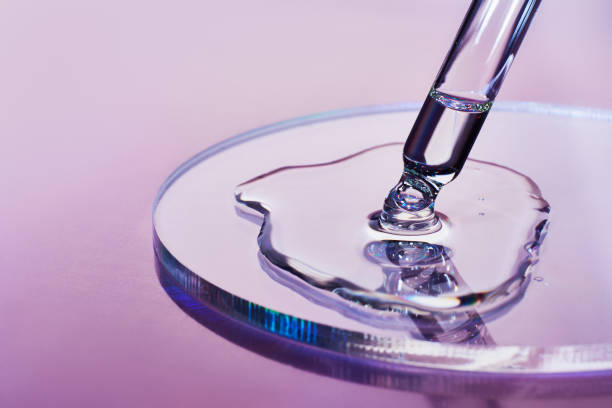Introduction to Skincare Cosmetics Retinol
Within the world of beauty, few ingredients have gained as much respect and recognition as retinol. This vitamin A derivative has become a gold standard in dermatology and cosmetic science. For decades, experts have praised its ability to reverse signs of aging, enhance texture, and improve overall skin health.
When used in skincare cosmetics retinol products, this ingredient offers transformative results. Unlike many beauty trends, retinol has years of clinical research supporting its effectiveness. Today, it remains one of the most recommended solutions for individuals who want to fight fine lines, wrinkles, hyperpigmentation, and acne.
What Is Retinol?
Retinol is a form of vitamin A, part of a group called retinoids. When applied topically, it converts into retinoic acid, which influences skin cell behavior. This process speeds up cell turnover, stimulates collagen production, and helps regulate oil production.
Because of its versatility, retinol has found a place in a wide range of skincare cosmetics retinol formulations, from lightweight serums to rich night creams. Unlike harsh treatments, it can be adjusted in concentration to suit different skin types and concerns.
Why Skincare Cosmetics Retinol Are So Popular
There are several reasons why skincare cosmetics retinol dominate the beauty industry:
- Clinically Proven Results: Retinol has decades of research validating its benefits.
- Multi-Action Power: It targets wrinkles, acne, uneven tone, and enlarged pores simultaneously.
- Long-Term Improvements: Regular use leads to healthier, more resilient skin over time.
- Accessibility: Available in drugstore and high-end formulations, it is not limited to luxury buyers.
Benefits of Skincare Cosmetics Retinol
1. Anti-Aging Effects
Retinol reduces fine lines and wrinkles by encouraging collagen and elastin production. With consistent use, skin looks firmer and smoother.
2. Even Skin Tone
It lightens dark spots, sun damage, and post-acne scars, creating a more uniform complexion.
3. Acne Control
Retinol unclogs pores, reduces breakouts, and prevents future acne flare-ups.
4. Refined Texture
Regular application minimizes rough patches and promotes softer, smoother skin.
5. Radiance Boost
By accelerating cell turnover, retinol restores natural glow and brightness.
Different Forms of Skincare Cosmetics Retinol
Not all retinol products are the same. Depending on concentration and formulation, they serve different purposes.
- Retinol Creams: Rich and moisturizing, ideal for dry or mature skin.
- Retinol Serums: Lightweight and concentrated, suitable for layering in routines.
- Retinol Oils: Provide nourishment while delivering vitamin A benefits.
- Encapsulated Retinol: Slow-release technology that reduces irritation.
- Prescription Retinoids (like tretinoin): Stronger versions available under medical supervision.
How to Use Skincare Cosmetics Retinol in a Routine
Step 1: Cleansing
Begin with a gentle cleanser to remove impurities and prepare the skin.
Step 2: Hydrating Toner or Essence
This helps balance the skin and prevent dryness when retinol is applied later.
Step 3: Retinol Application
Apply a pea-sized amount of skincare cosmetics retinol product in the evening. Start with two to three times per week, then increase frequency gradually.
Step 4: Moisturizer
Seal hydration with a nourishing cream to minimize potential irritation.
Step 5: Sunscreen (Morning Routine)
Always apply sunscreen during the day, since retinol increases photosensitivity.
Best Practices for Using Retinol Safely
- Start slowly with low concentrations.
- Avoid combining with strong exfoliants or high-strength acids on the same night.
- Apply only at night unless a daytime formula specifies otherwise.
- Pair with soothing ingredients like niacinamide or hyaluronic acid.
- Monitor skin’s response and adjust frequency if irritation occurs.
Who Should Use Skincare Cosmetics Retinol?
Retinol is versatile and benefits most skin types. It works particularly well for:
- Individuals over 25 noticing early signs of aging.
- Those dealing with acne-prone or oily skin.
- People with hyperpigmentation or uneven texture.
- Mature skin needing collagen stimulation.
However, those with extremely sensitive skin or conditions like eczema should consult a dermatologist before introducing retinol.
Lifestyle Habits That Support Retinol Use
Skincare is not just about products; habits play an equally important role. To maximize results of skincare cosmetics retinol:
- Stay hydrated to support skin barrier health.
- Maintain a balanced diet rich in antioxidants like vitamin C and E.
- Get enough sleep, as skin repairs itself overnight.
- Reduce stress, which often worsens breakouts and dullness.
- Protect against UV damage with broad-spectrum SPF.
Common Mistakes When Using Retinol
Even though retinol is highly effective, misuse can cause problems. Avoid these common mistakes:
- Applying too much product, which can lead to irritation.
- Using it daily from the start instead of gradually building tolerance.
- Skipping sunscreen, which cancels out the benefits.
- Mixing incompatible products without guidance.
- Expecting overnight results instead of consistent improvements.
Skincare Cosmetics Retinol for Different Ages
- 20s: Preventive use helps delay early aging. Low-concentration serums are best.
- 30s: Target fine lines and uneven skin tone with moderate-strength products.
- 40s: Focus on firming creams and advanced serums for elasticity.
- 50s and beyond: Combine retinol with peptides, ceramides, and hydrating agents for maximum nourishment.
Top Ingredients That Work Well with Retinol
Retinol works best when paired with supportive ingredients:
- Hyaluronic Acid: Provides deep hydration to counter dryness.
- Niacinamide: Calms irritation and strengthens the skin barrier.
- Peptides: Enhance collagen production for firmer skin.
- Vitamin C (morning use): Adds antioxidant protection and brightens.
- Ceramides: Repair and protect the lipid barrier.
Recommended Skincare Cosmetics Retinol Products
While exact product choices depend on personal preferences, some popular categories include:
- Drugstore Options: Budget-friendly creams with mild retinol concentrations.
- Mid-Range Serums: Balanced formulas with hydrating components.
- Luxury Treatments: Encapsulated retinol with advanced delivery systems.
- Professional-Grade Options: Prescription retinoids for severe skin concerns.
Sustainability and Retinol Formulations
Many skincare cosmetics retinol brands now focus on sustainability by using recyclable packaging, cruelty-free testing, and responsibly sourced ingredients. Eco-conscious consumers can enjoy effective skincare while minimizing environmental impact.
Frequently Asked Questions About Skincare Cosmetics Retinol
1. Can beginners use skincare cosmetics retinol?
Yes. Start with a low concentration and apply twice per week, gradually increasing usage as tolerance builds.
2. Is retinol safe during pregnancy?
No. Retinol and other vitamin A derivatives should be avoided during pregnancy. Always consult a healthcare professional.
3. How long does it take to see results with retinol?
Visible improvements usually appear within 8–12 weeks of consistent use.
4. Can retinol be used with vitamin C?
Yes, but not at the same time. Vitamin C is best used in the morning, while retinol is applied at night.
5. What is the difference between retinol and retinoids?
Retinol is an over-the-counter option, while retinoids include stronger prescription forms like tretinoin.
6. Does retinol thin the skin?
No. Retinol thickens the dermis by stimulating collagen, though it may cause temporary peeling.
7. Can sensitive skin use skincare cosmetics retinol?
Yes, but it is best to start with encapsulated formulas or products designed for sensitive skin.
8. Do I need to stop using retinol before cosmetic procedures?
Yes. Most dermatologists recommend pausing retinol use a few days before treatments like chemical peels or laser therapy.
9. Is retinol suitable for men?
Absolutely. Retinol benefits men and women equally by improving texture, tone, and signs of aging.
10. Can I use retinol around the eyes?
Yes, but only with specially formulated eye creams that contain lower concentrations.

